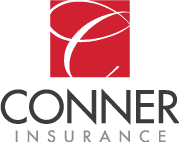Illuminate Your Blind Spots To Improve Your Health Care Program
BY BEN CONNER

Great leaders hunt down their blind spots to optimize their performance. They read about the latest innovations. They study their competitors. They find inspiration from companies in separate industries. Despite their efforts, many business leaders unknowingly allow blind spots to grow around their health care program.
A great advisor will help you find your blind spots, but you can evaluate yourself, your team, and your plan to see if you are committing any of the most common mistakes that can drain your program’s value.
Common Blind Spots in Serving Your Employees
Many companies overlook some of the most basic, human elements of their plan details. To ensure your employees receive the most value possible from your program, ask yourself these questions:
- If my employee is prescribed a new medication, can they afford to fill it? Yes, your prescription drug plan may include a certain medication, but it may not cover enough of the costs to support your employees. Review your plan to evaluate how well it benefits employees. Alternative prescription providers and sourcing methods could help you access better care at a lower cost.
- If my employee’s child gets sick, can the employee afford to take time off to visit the doctor? This question covers two concerns. First, are doctor appointments affordable for employees to take them as needed? Second, how does your health benefits plan weave into your sick leave policy or paid time off? If employees lack the time or resources to receive medical care, your health plan fails to provide meaningful value.
- If my employee has a question about plan details, can they get an answer? Asking for information may seem like a simple request, but health plans are complex, and finding answers isn’t always easy. We often talk to companies who are ill-equipped to address employee questions. Talk to HR and your provider to discuss tactics for providing additional plan details.
- If my employee has a major life event, will they feel like they’re being penalized when they use the plan? Again, this question tackles multiple aspects of your overall benefits package. If an employee is diagnosed with cancer, will your plan provide sufficient support for treatment? Is your sick leave policy flexible enough for someone to take time off to receive chemotherapy?
If we miss these blind spots, our plan provides less and less value over time as the issues compound. Asking these and similar questions is the best way to reveal those blind spots and the problems they create.
Common Blind Spots in Your Administration
The employee side of the plan isn’t the only area where you may miss key issues. Your leadership team may have a few of its own blind spots when considering plan optimizations. Questions you should ask include:
- When was the last time I (or my team) evaluated the company’s plan details? If you’ve simply renewed your plan for the last few years, there may be significant potential for major improvements to price and performance.
- How frequently do I and my team think about our plan? Do you only think about your plan’s performance when you visit the doctor or when renewal season arrives? If so, take the time to evaluate your plan throughout the year. When you regularly monitor its performance and consider how it impacts your employees, you can take active steps to improve it as issues emerge.
- Do I know how much my plan costs? Certain metrics, like the medical costs per employee per year, are valuable yardsticks for comparing your plan from one year to the next and against other plans. But there are other factors to consider, including how much time leadership spends answering questions, potential discounts you may miss, and extra medical fees for complications created by subpar hospital services. When you take all of these factors into account, you have a clearer picture of what your plan costs and opportunities to reduce expenses.
We all have our own blind spots. The only way to uncover them as leaders is to make time for introspection and to evaluate our own behaviors and biases.
Go Deeper
Once you’ve considered the questions above, you may uncover new concerns about your plan. Contact your advisor. By digging deep into your plan details to remove your blind spots, you can drive significant change on behalf of your employees and your company finances.












